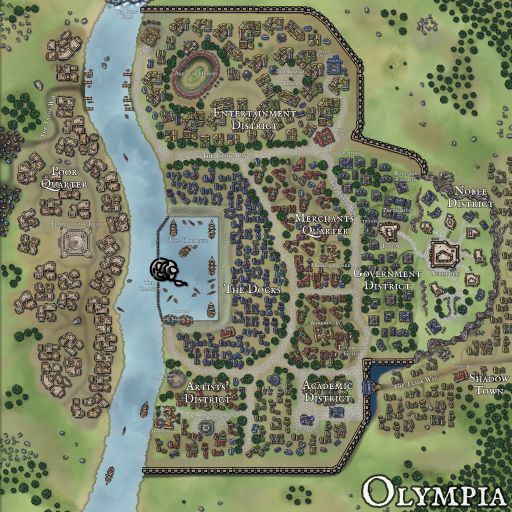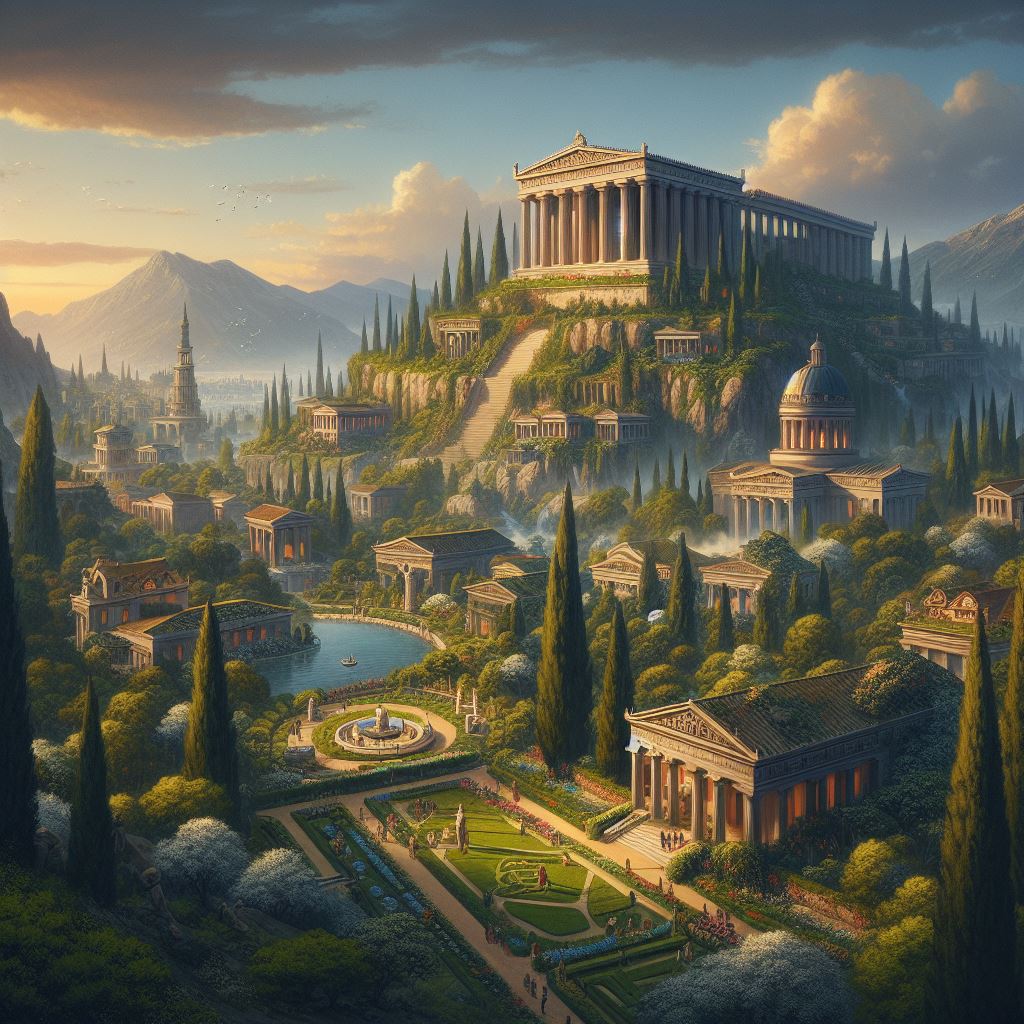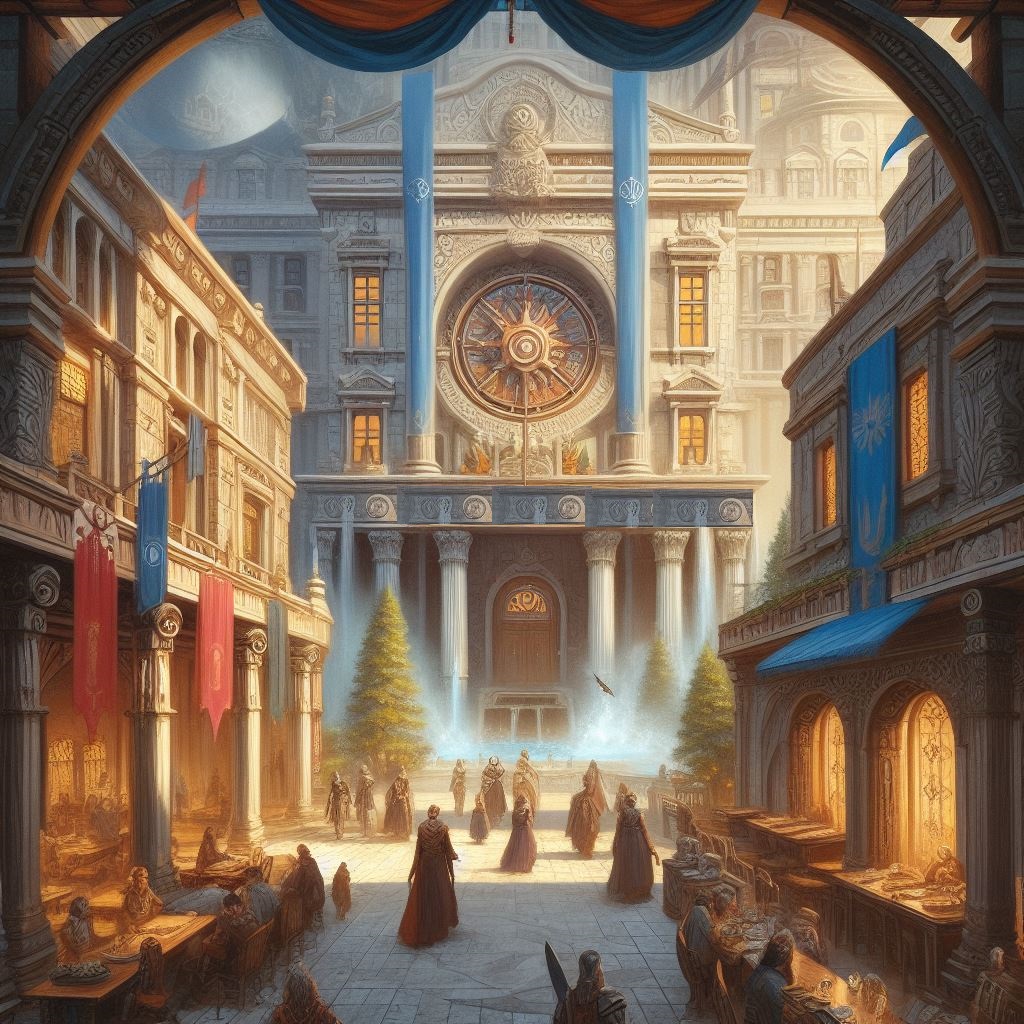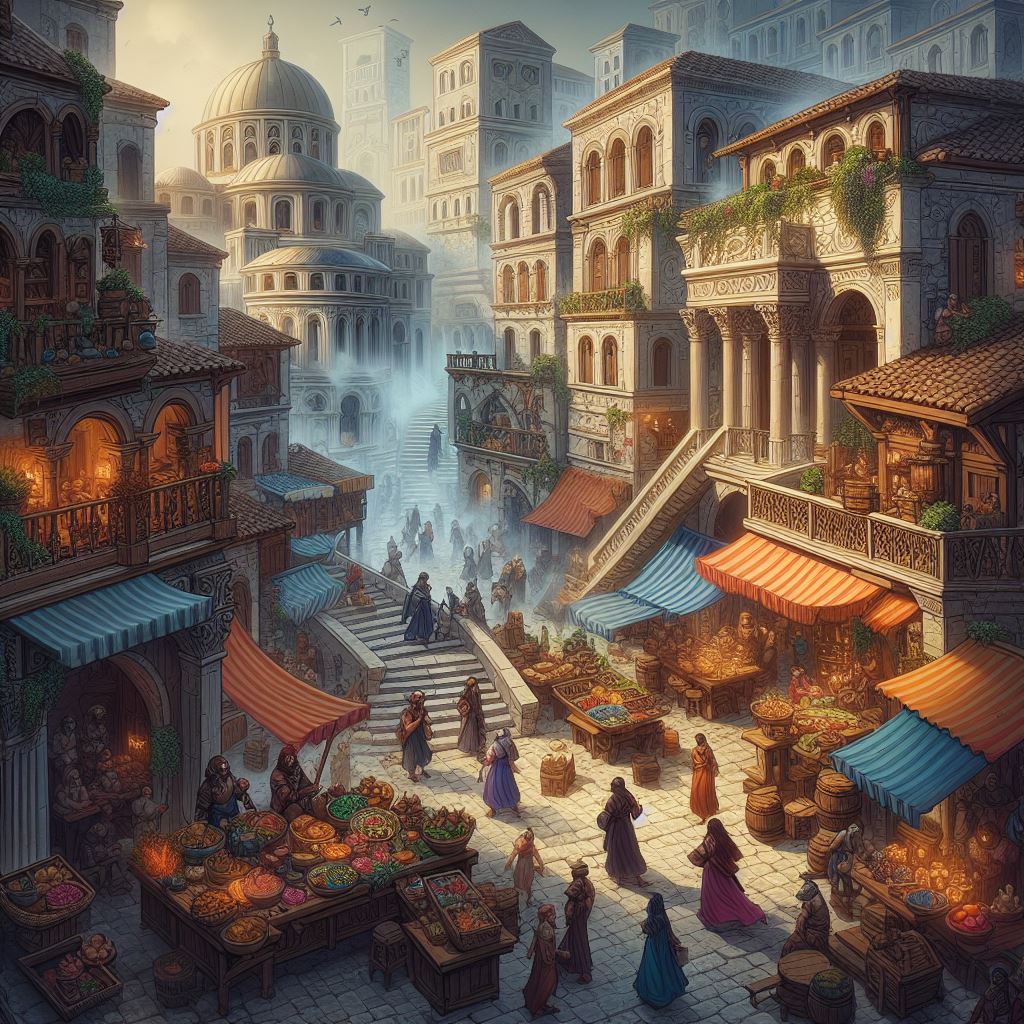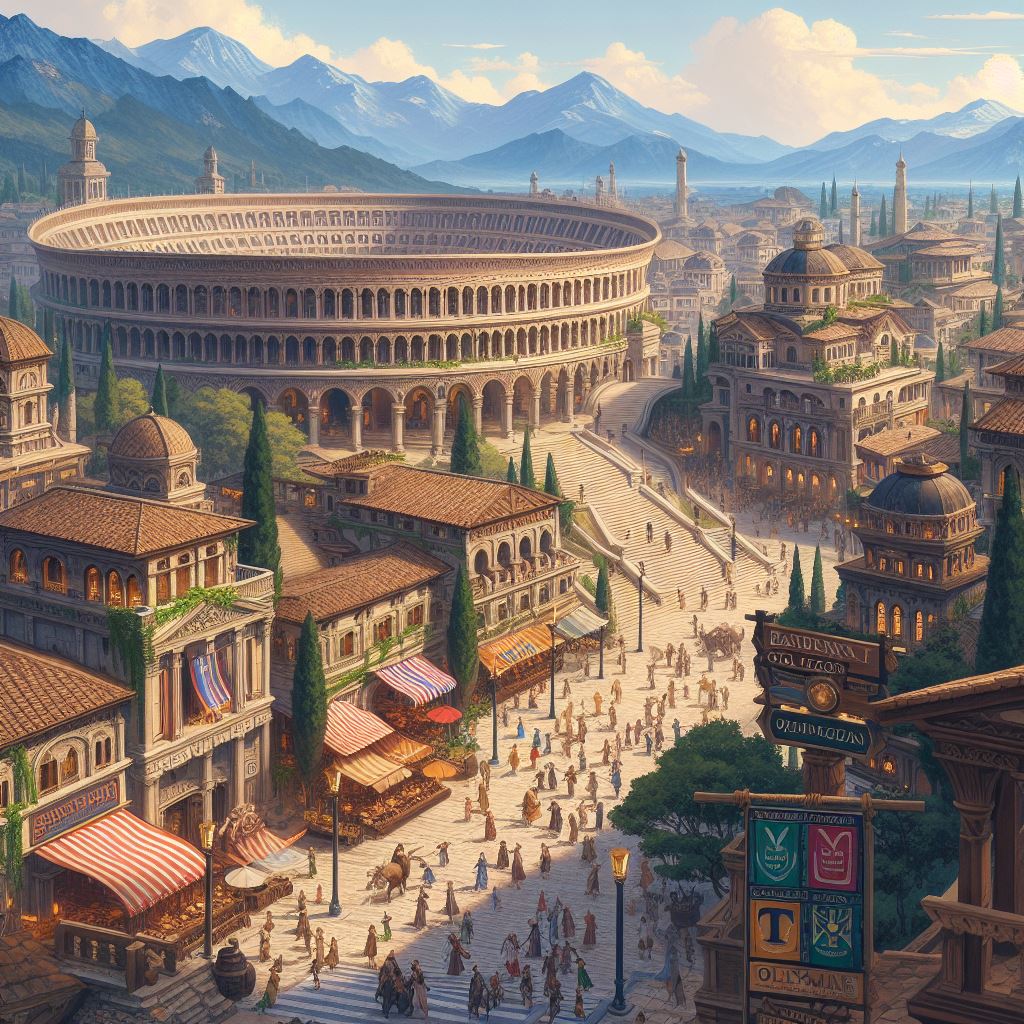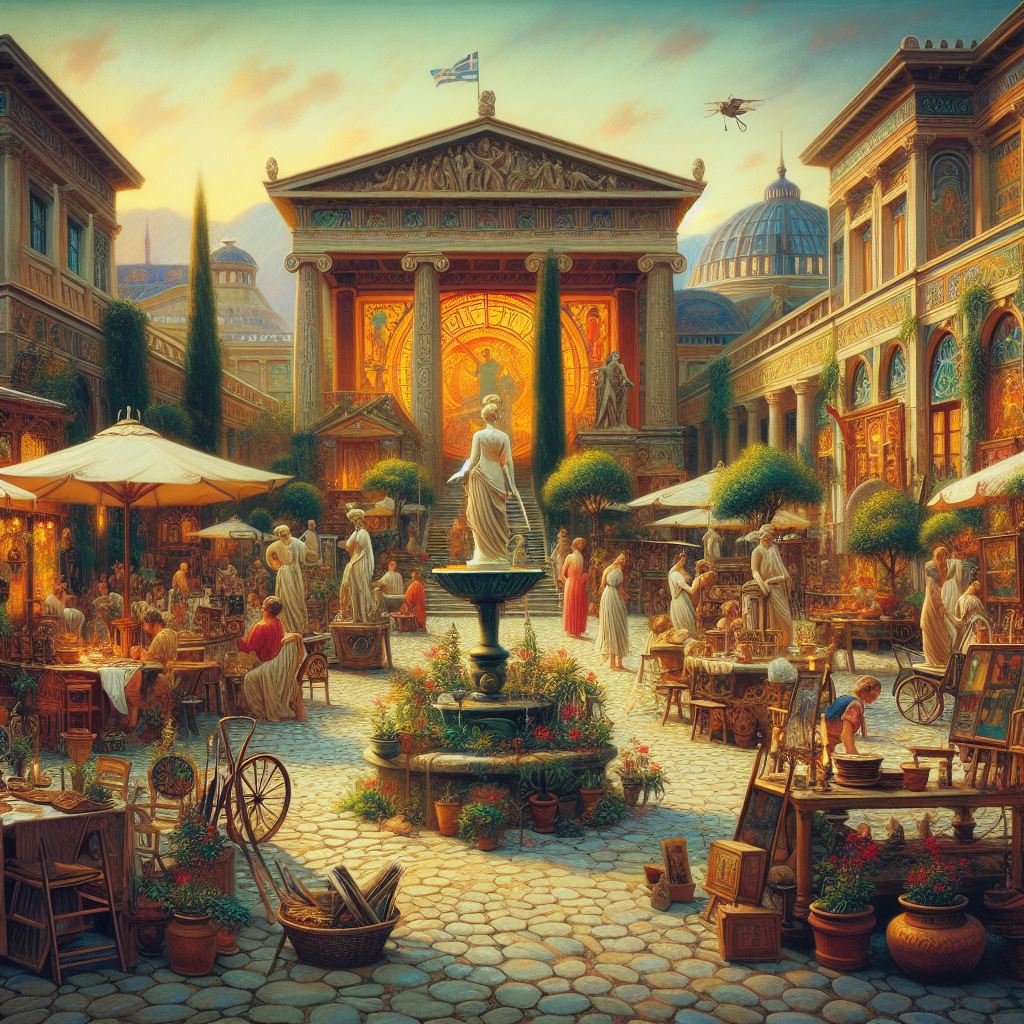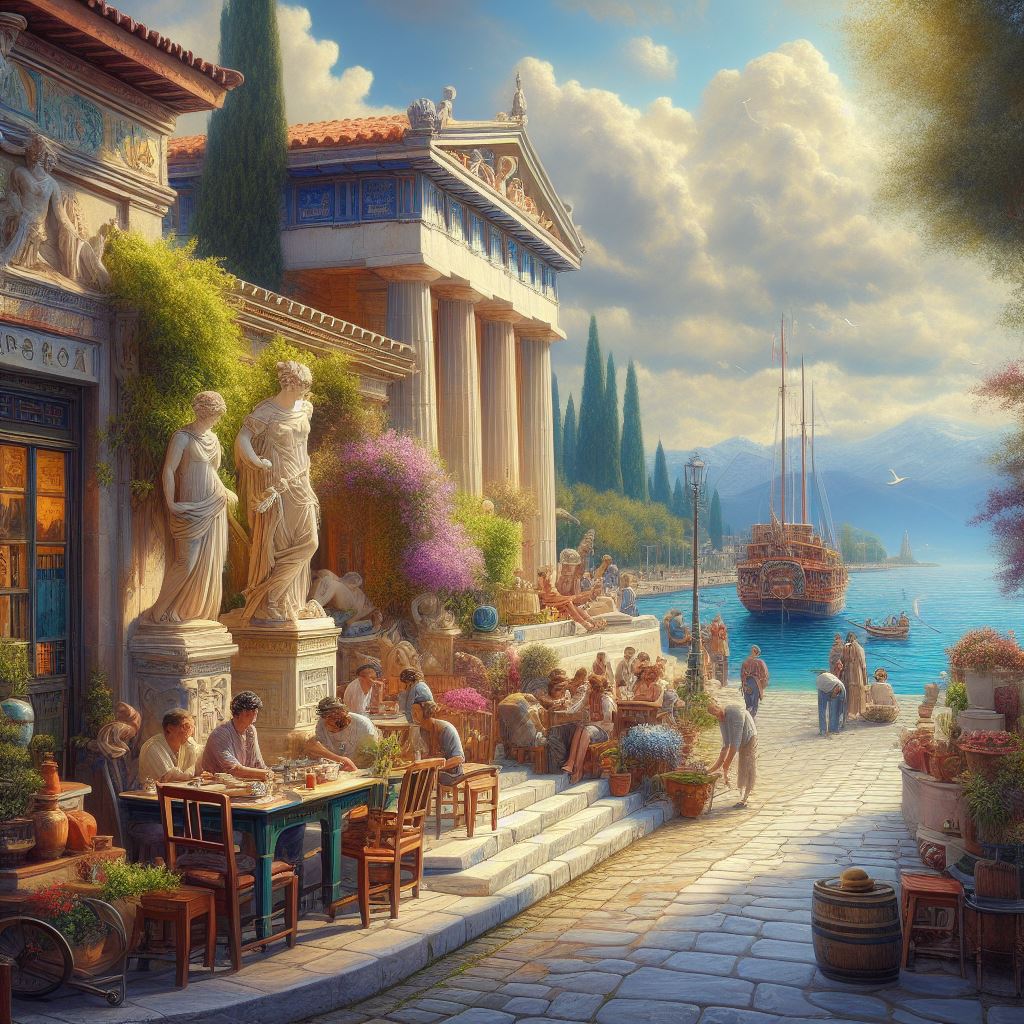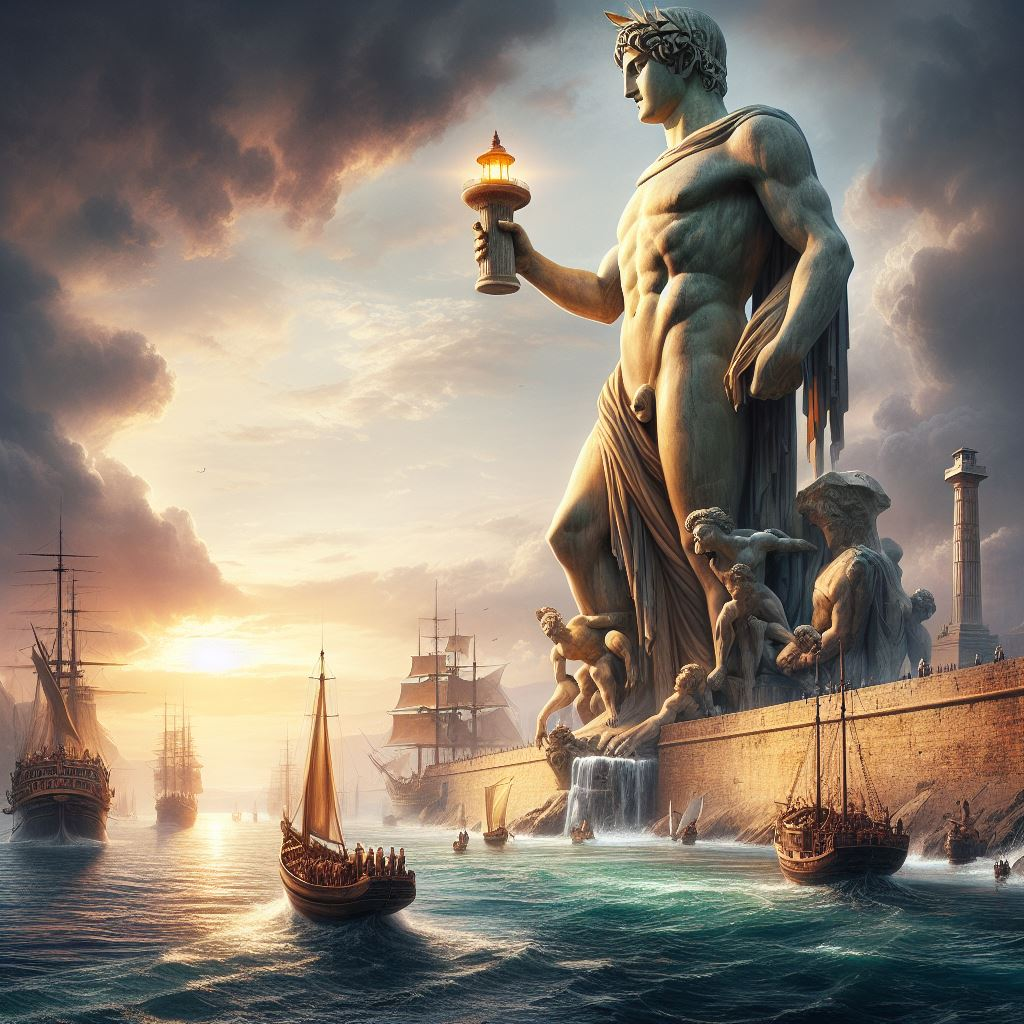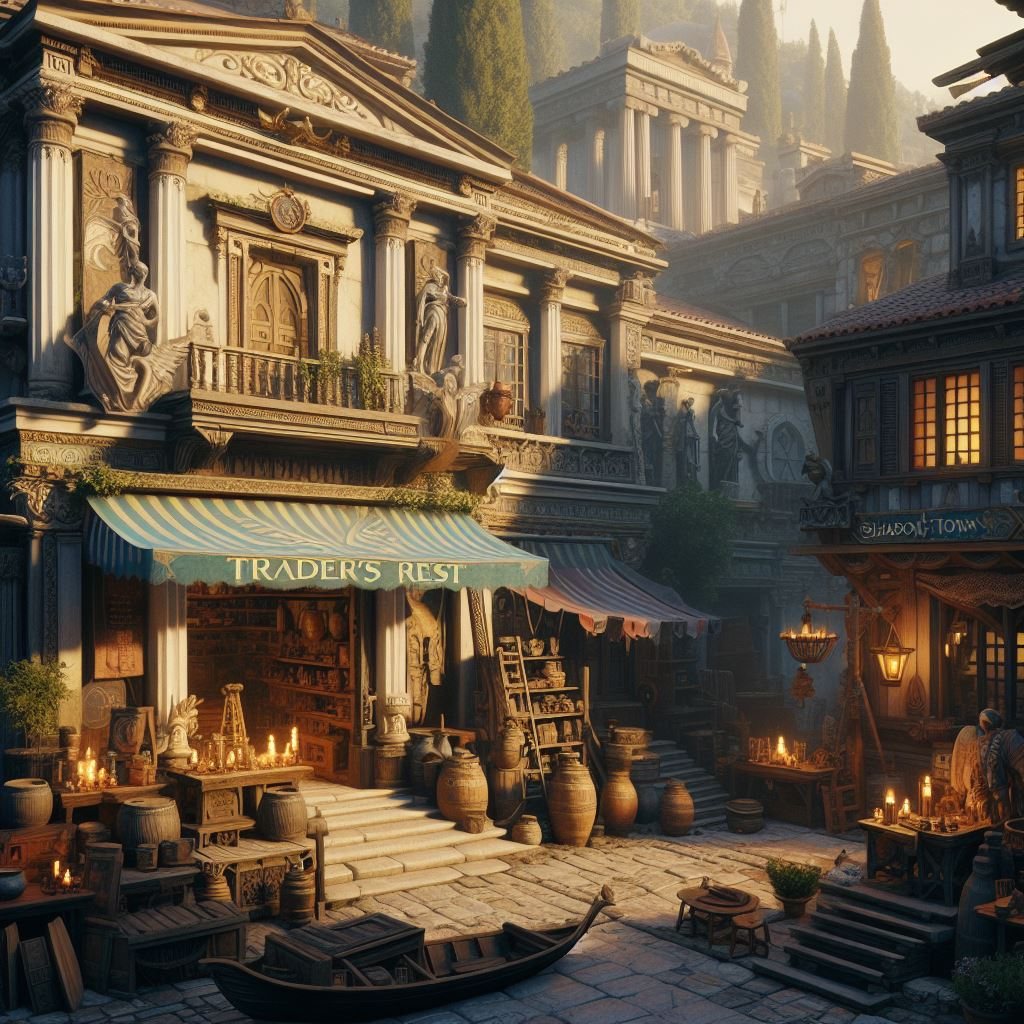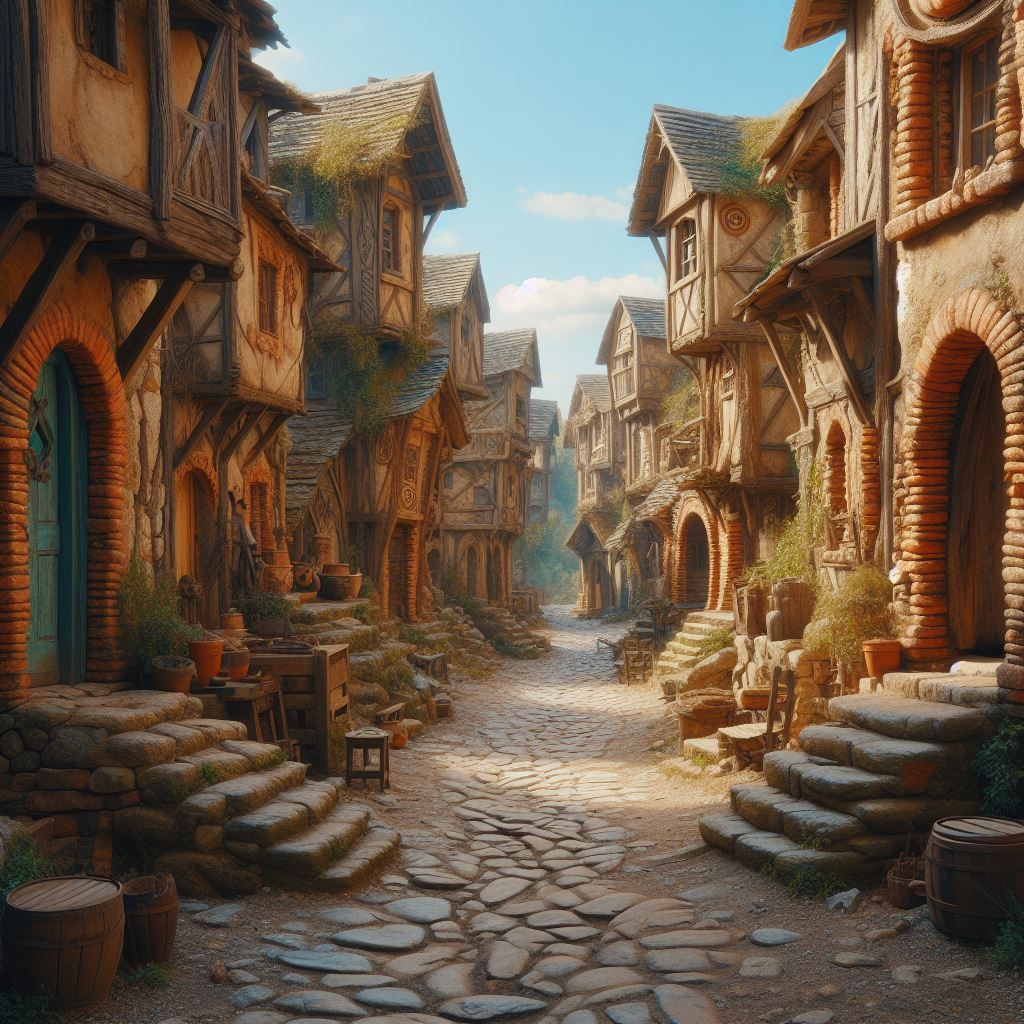Athena
Athena is a large country comprising a large area in the south east of the main continent of Rodinia, plus large numbers of islands off the coast of the mainland. The islands of Ethion and Aquadis are the two largest of the member isles.
Geography
The Athenians are probably the greatest sea faring nation in the entirety of Rodinia. They are probably the cultural leaders of the world, having many philosophers, architects, sculptors and writers among their population. Their art is second to none and is the most sort after by knowledgeable collectors across the world.
Athena is a land which, unusually in Rodinia, is a democracy, with the government elected by the people. The main government is known as the Council, and votes are taken in a huge gathering known as the Assembly.
The navy and army are paid well and it is considered an honor to fight for the country, meaning the country is well defended.
The Athenians are considered allies by Rodinia, which allows the Athenians to flourish without threat from the superpower. To this end there are two major trade routes between Rodinia and Athena, which pass through Nargastan. These trade routes are constantly under threat from the Nargastanis.
Olympia
Olympia is the capital city of Athena and possibly the most culturally advanced place on the planet. The base for many of the world's greatest artists, sculptors, poets and musicians, this city is also home to some of the most intelligent and educated scientists. If there was a power base for cultural refinement in Rodinia, this would be it.
Demographics
As with most of Athena, the vast majority of the population is human, with a very small number of non-humans in residence.
Most of the people living here are Athenian, but the Poor District has a fairly large proportion of refugees from neighbouring Nargastan. Generally, the further east you go the wealthier the people. The western district is where most of the poor live, and the rich nobility live on top of the hill at the far east end of the city.
There are more artists and artisans in Olympia than any other settlement in The Known World, meaning this city is a cultural hub and focus.
Government
The government of Olympia is a complex and intricate system that reflects its rich cultural heritage and maritime prowess. At the helm is the Archon, a leader elected by the citizens for their wisdom and experience in both civic and military matters. The Archon presides over the Senate, a council of esteemed individuals representing the various facets of Olympian society, from the arts to commerce.
Below the Senate, the Assembly serves as the voice of the people, where every citizen has the right to speak and vote on matters of public policy. This democratic institution ensures that the will of the populace is heard and considered in all governmental decisions.
The Magistrates, appointed officials, are responsible for the day-to-day administration of the city, overseeing everything from trade regulations to public festivals. They work closely with the Harbor Master, who commands the naval forces and ensures the security of Olympia’s waters.
Justice is administered by the Dikasteria, courts presided over by a panel of citizens chosen by lot. These courts uphold the laws set forth by the Assembly and interpret them in the spirit of fairness and equity.
In Olympia, the intertwining of governance and culture is evident in the patronage of the arts and the celebration of civic achievements. The government not only administers but also embodies the values of the city, fostering a society where art, culture, and seamanship are the cornerstones of civic pride and identity.
Defences
The eastern city (everything east of the river) is walled, and the hill is steep with rugged cliffs, meaning most of the city is well defended. The Poor District has no walls and is on the same side of the river as Nargastan - some would argue is technically inside Nargastan - meaning it's not well defended at all. Likewise the sprawling district of Shadow Town has grown up outside the walls and is totally open to attack. That said, an attacking force would need to be on the Athenian side of the river to strike Shadow Town.
Districts
Noble District
The Noble District of Olympia is a vision of splendor and tranquility, where the city’s elite reside amidst architectural marvels and verdant landscapes. At the pinnacle of the district sits the Acropolis of Olympia, a grand citadel that houses the most sacred temples and the palatial homes of the most esteemed families. Its elevated position offers a commanding view of the entire city, symbolizing the lofty status of its inhabitants.
The streets of the Noble District are lined with statues and fountains, each telling a story of Olympia’s storied past. The parks and gardens are masterpieces of horticultural art, with exotic flowers and meticulously trimmed hedges creating intricate patterns. These green spaces serve as serene retreats for contemplation and leisurely strolls.
The Garden of Harmonia is particularly famous, known for its labyrinthine rose gardens and the melodious song of birds that dwell within. It’s a place where nobles gather for afternoon tea and poets find inspiration among the blooms.
The district is also dotted with open-air theaters and music pavilions, where the city’s most talented performers entertain the aristocracy with plays, concerts, and recitals. The air is often filled with the soft strains of lyre music and the gentle murmur of fountains, creating an atmosphere of peace and refinement.
The Noble District is not just a residential area but a cultural haven, reflecting the wealth, power, and artistic appreciation of Olympia’s most influential citizens.
Government District
The Governmental District of Olympia stands as a testament to the city's democratic heritage and its reverence for order and wisdom. At its center lies the Forum, the grand council chamber where the city's most esteemed leaders gather to debate and decide on matters of state. Its majestic columns and steps are carved from the finest marble, reflecting the sunlight in a display of splendor.
Surrounding the Forum are various administrative buildings, each dedicated to different facets of governance. The Strategion houses the military strategists and planners, while the Archives preserve the written records of laws and decrees. A single embassy of Athena's strong ally, The Empire of Rodinia, is found here. The Senate are currently in discussions with far-off civilizations from Khemit, The Empire of Honshu and the Lucarcian Continent, about establishing embassies for those countries.
Open-air forums are scattered throughout the district, facilitating public discourse and civic engagement. Here, citizens gather to listen to orators and participate in the democratic process, their voices echoing off the stoa-covered walkways.
Even in this hub of politics and administration, the arts flourish. Statues of legendary lawmakers and heroes line the pathways, and intricate mosaics depict scenes of historical significance, reminding all of Olympia's storied past and the principles that guide its future.
The Prytaneion serves as the headquarters for the city's security, where the guardians of peace strategize to keep Olympia safe. The district is patrolled by vigilant, yet respectful, hoplites who ensure that order is maintained. The city's army and navy headquarters and barracks are also housed in this district.
In the Governmental District, the weight of history and the promise of progress are palpable, as it embodies the collective aspirations and responsibilities of Olympia's citizenry.
Merchant District
In the heart of Olympia, the Merchant District is a bustling hub of commerce and creativity, echoing the grandeur of Athena. Imagine a vibrant marketplace, where the air is filled with the mingling scents of olive oil, sea salt, and fresh parchment.
In the heart of Olympia, the Merchant District is a bustling hub of commerce and creativity, echoing the grandeur of Athena. Imagine a vibrant marketplace, where the air is filled with the mingling scents of olive oil, sea salt, and fresh parchment. The district is laid out in a ribbon pattern, surrounded by wide, stone-paved streets. The famous The Trade Way flows around the district. It abuts the Dock District where much of the goods sold here are imported. Many of the others are crafted in the adjacent Artists' District. White marble buildings with ornate friezes stand proudly, their facades adorned with frescoes depicting the gods and heroes of old.
Artisans' workshops line the streets, showcasing exquisite pottery, sculptures, and textiles. Merchants from distant lands hawk spices, silks, and precious metals, while local craftsmen offer olive wood carvings and silver jewelry. The hub of this district is undoubtedly the Market Square where the richest merchants set up store. A relatively new addition to this district is the warehouse owned by The Guild of Master Merchants and Seafarers from Lucarcia across the eastern seas. It is nestled in with a large number of other, independent warehouses.
Bards recite epic poems in open squares, competing for the crowd's adoration and coins. Philosophers debate under the shade of olive trees, surrounded by eager pupils. The district is not just a place of trade but a crucible of ideas and artistry. The proximity to the harbor infuses the district with a nautical charm. Shipbuilders and sailmakers ply their trades, and taverns are filled with tales of distant shores and perilous voyages. This is a place where the spirit of adventure and the pursuit of beauty coexist, making the Merchant District the pulsing heart of Olympia's cultural and economic life.
Entertainment District
The Entertainment District of Olympia is a symphony of revelry and spectacle, where the joyous spirit of the city is on full display. At its center is the Grand Plaza, a vast open space framed by towering columns and statues of deities embodying mirth and play. The plaza serves as a stage for festivals and gatherings, its marble tiles echoing with the laughter of citizens and the melodies of street performers.
Surrounding the plaza are numerous taverns and restaurants, each offering a taste of Olympia’s rich culinary traditions. The air is rich with the aromas of sizzling meats, sweet wines, and freshly baked bread. These establishments range from the humble to the exquisite, catering to all who seek sustenance and merriment.
Nestled among the eateries are the bardic colleges, where the art of storytelling and music is taught and perfected. These institutions are hives of activity, with students practicing their lutes and reciting verses late into the night.
Dominating the district is the Arena of Heroes, a colossal structure reminiscent of a coliseum. Here, gladiators and performers alike showcase their prowess in events that captivate the masses. The roar of the crowd within its walls is a testament to Olympia’s love for grandeur and competition.
The Entertainment District is where the heart of Olympia beats loudest, a place where every night is a celebration of life’s grand theater.
Artists' District
The Artists District of Olympia is a vibrant tapestry of creativity, where the air hums with the energy of artistic endeavor. At its heart lies the Gallery of the Muses, a renowned institution dedicated to the celebration of the arts.
The Gallery of the Muses stands as a testament to Olympia’s artistic heritage, with its grand columns and marble facade echoing the elegance of the city’s golden age. Inside, the gallery is divided into several wings, each named after one of the nine muses, patron goddesses of the arts. The Calliope Wing showcases epic poetry and literature, while the Thalia Wing bursts with comedic plays and performances.
Artists from across the city and beyond flock to the district, their easels and canvases dotting the cobblestone streets. The scent of oil paint and clay intermingles with the sweet melodies of lyres and flutes played by street musicians.
The district is also home to the Olympian Artisan Market, where one can find exquisite handmade jewelry, pottery, and textiles. The market is a riot of color and sound, with vendors hawking their wares and artisans demonstrating their craft.
As night falls, the district comes alive with the glow of lanterns, and the Starlight Amphitheater hosts open-air performances under the stars. The Artists District is not just a place, but a living canvas, ever-changing and always inspiring.
Academic District
In the heart of Olympia, the Academic District is a bustling hub of knowledge and enlightenment, reminiscent of the ancient Athenian agora. Here, the air is thick with the scent of papyrus and ink, and the sounds of passionate debates and poetic recitations fill the streets.
The Scholar's Walk is the main thoroughfare, lined with statues of famous philosophers and heroes, leading to Camero's Institute of the Arcane and The Grand Library of Olympia. The library, a monumental structure, houses an extensive collection of scrolls and texts, with dedicated areas for the study of astronomy, mathematics, philosophy, and the arts.
Surrounding the library are various schools and lecture halls, where orators and scholars engage with students eager to absorb wisdom. The architecture is a blend of functionality and artistry, with open courtyards, intricate mosaics, and lush gardens providing serene spots for contemplation.
At the district's edge, near the bustling port, stands The Mariner's Compass, a school dedicated to the study of navigation and sea faring. Here, one can hear the melding of academic discourse with the salty tales of seasoned sailors.
The Academic District is not only a place of learning but also a cultural nexus, where festivals, exhibitions, and competitions are regularly held, celebrating the city's devotion to the pursuit of knowledge and artistic expression.
Dock District
The Dock District of Olympia is a lively nexus where the musings of poets mingle with the robust energy of seafaring life. At the district’s soulful core is the Tavern of the Epic Bard, a legendary establishment where poets, both famed and obscure, recite verses that echo the rhythm of the waves. The tavern’s walls are a tapestry of odes to the sea, and it’s a place where every patron’s story is woven into the rich fabric of Olympia’s maritime lore.
The shipyard is a testament to human ingenuity and craftsmanship, where the scent of timber and tar fills the air. Here, vessels from modest fishing skiffs to majestic galleons are constructed, their hulls promising to dance with the tides and winds of distant seas.
The docks stretch out like the arms of Poseidon, embracing the bounty of the ocean. Merchants from across the known world barter goods amidst a cacophony of languages, while sailors haul nets brimming with the day’s catch.
Dominating the skyline is the Colossus of the Docks, a statue so immense that its feet are planted on either side of the harbour, forming a gateway for the ships that pass beneath. This towering figure holds a lantern aloft, its light a constant sentinel for those navigating the treacherous waters, and a symbol of the city’s enduring bond with the sea.
The Dock District is more than a mere segment of Olympia; it is a beating heart, pumping the lifeblood of trade and tales into the city’s veins. It is here that one can truly sense the pulse of Olympia’s vibrant existence.
Shadow Town
Built up in the shadows of the great hill upon which the Noble District is constructed, Shadow Town is a place which has grown organically outside the city walls, along the Trade Way.
The Trader's Rest is a decent sized and well-appointed inn which was built to accommodate travellers who arrive at the city gates too late to gain entry into the city and need a place to stay overnight. Quality food, a good standing skald and decent prices means some choose to frequent it even when they can enter the city. It is also a haven for Adventurers and mercenaries alike.
Poor Quarter
The Poor Quarter of Olympia, often referred to as the Slums, stands in stark contrast to the city’s grandeur. The narrow, winding streets are lined with modest homes built from sunbaked bricks and wood, many showing signs of repair and resilience. The air carries the sounds of daily struggle but also the undercurrent of a community’s unbreakable spirit.
At the heart of the district rises the Temple of Light, a beacon of hope amidst the hardship. This humble sanctuary is built with whatever materials the faithful can spare, yet its simple beauty lies in the bright mosaics that adorn its walls, crafted from shards of glass and pottery, reflecting the light in a myriad of colors.
The temple serves not only as a spiritual haven but also as a center for aid, where the city’s less fortunate can find a warm meal, healing, and solace. The priests and priestesses of the temple are as much a part of the district as its residents, offering counsel and comfort to all who seek it.
Despite the scarcity, the Poor District is rich in camaraderie and hope. Street vendors sell their wares with pride, children play with handmade toys, and the people share stories and songs that echo the enduring heart of Olympia. It is a place where even the smallest light can dispel the deepest shadows.
Aquadis
Aquadis is the larger of the two southern isles off the mainland of Athena. Though technically being part of the overall democracy, the further away from the capital one gets, the less civilized the country becomes - and Aquadis is far enough away that at its southern fringes it becomes pretty lawless. The northern parts of this island are close to the civilized Ethion Isle, and a few more adventurous nobles have holiday villas here on the north shore. In fact it is something of a claim in the upper classes to have the most southerly retreat.
Ethion Isle
Ethion Isle is the nearest of the two southern islands off the mainland of Athena. Being the closest to the mainland it is also the most civilized. It is a very pleasant island with lovely vistas over the local seas and a very pleasant climate. Summers here are warm, if a bit humid, and the winters are quite mild. Many of the nobility of Athena have second houses on this island where they come for rest and relaxation.

 Prev
Prev


